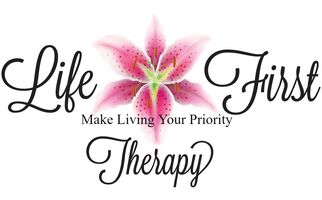 Depression can be defined as feeling sad for weeks or months and not just a day or two. Depression can be accompanied by a huge hole of emptiness inside, lack of energy and no pleasure in things once enjoyed. To be clear, clinical depression is different from normal sadness. Clinical depression interferes with one’s work or school, relationships with others and ability to enjoy life. However, clinical depression is treatable with modern antidepressant medications and goal-orientated psychotherapy. No two people experience depression the same. Some people may not seem sad while others can be unmotivated to do anything like eat or get dressed. These tasks can become large obstacles in their daily life. When friends and family notice these changes, it is alright to say something. Show your loved one how you are on their side. Avoid saying asking them, “Why can’t you just get dressed/eat/get out of bed?” Instead say, “You seem to have trouble getting dressed/getting out of bed/eating. What can I do to help you in this area?” Never ask what their problem is or invalidate their feelings by telling them they are upset about nothing. Instead express your support by stating, “You seem to be finding this issue a big deal at the moment. How can we solve it together?” Since many people suffering from depression have lost their ability to recognize their positive attributes, giving plenty of reassurance can also be very helpful. People with depression can spend a lot of time reflecting on their situation. Give understanding and sympathy by sometimes doing nothing but merely listening. Offer a hug or to hold them for a moment. This also conveys how you are there for them. Try not to be offended if your loved one asks you to leave them alone. Sometimes, that is the most helpful thing you can do at that moment. It is also important to accept the person where they are and not let it totally consume your life. You too have to take care of yourself. Set healthy boundaries. Know your limits as to how you can commit to helping them while balancing your own needs so you can recharge and look after them the best way possible. Other things you can ask of your depressed loved one are:
Offer to fix your loved one lunch, tidy up their place, take them out for coffee or a movie. No one thinks twice about doing or offering these things for someone who is going through chemo. Why not go there for a person battling a serious mood disorder?
0 Comments
 The term drug is used to describe all mood-altering substances including alcohol and other sedative-hypnotics, opioids, stimulants and psychedelic drugs. Thinking and talking about cravings for alcohol and other drugs can make some people crave them more. However, thinking and dreaming about alcohol and other drugs is a natural part of recovery. Learning how to stop these thoughts and turning them into cravings can help prevent a person from resuming use. Education about substance use is important. Learning how resume of use occurs, how to prevent it and identify signs that lead up to it, people can prevent returning back to using. People, places and things are connected to the use of alcohol or other drugs. Triggers are feelings and experiences tied to people, places and things that are associated with drinking or drug use. To help identify your triggers, do the following:
To help identify internal, external and sensory triggers, do the following:
To help deal with triggers, do the following:
Developing skills and tools in recovery is vital as sobriety is an ongoing process. Therapy and self-help meetings can help you develop a new set of important skills that will help with stopping triggers from leading to relapse.  Deciding that you need professional help can be hard on its own. Seeing a therapist does not mean you are weak although being vulnerable in front of a complete stranger can be uncomfortable. Going to therapy is more than sitting in an office and talking. Therapy includes building a professional, therapeutic relationship with boundaries and goals you want to achieve. The client-therapist relationship is a collaborative relationship. The therapist listens, ask questions and evaluates your needs, barriers and challenges. As well, you listen, ask questions and identify your needs, barriers and challenges. If you cannot identify your needs, barriers or challenges, that's okay! Your therapist has many years of experience and should be able to help you. Unfortunately, some therapeutic relationships are not balanced. Although finding a therapist that is a right fit for you can be hard, it can be done. Be encouraged! You do not want to stay in any client-therapist relationship that is not serving you. Be empowered by the fact that you can now use that past experience to your advantage by knowing what to look for in your new therapist. In addition, keep these 5 things in mind:
|
Archives
February 2021
About MeI am a loving and perceptive therapist. I helps professional women of color! I work collaboratively with my clients to build their self-confidence. We identify tools that are needed to build a career and live a life worth living! I listen quietly and attentively remembering details to tell truths that need to be spoken. Let's Connect |
|
CONTACT ME
Phone: 267-598-LIFE (5433) Email: [email protected] Mailing Address 2031 66th Ave, #14176 Philadelphia, PA 19138 |
If you are in a crisis, online therapy is not the best option for you.
Call the National Suicide Prevention Lifeline 1-800-273-8255 or text "988" |
Disclaimer: Please note, the information offered on this website is not, nor is it intended to be, therapy or psychological advice, nor does it constitute a client/therapist relationship. Please consult a physician for individual advice regarding your own personal health and well-being. Thank you.
© 2017-2024 Life First Therapy | ALL RIGHTS RESERVED.
© 2017-2024 Life First Therapy | ALL RIGHTS RESERVED.

 RSS Feed
RSS Feed
